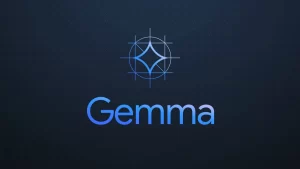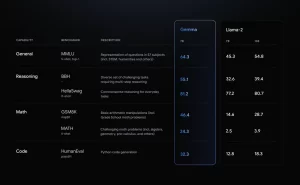
NEW FAMILY OF OPEN-SOURCE AI MODELS – GEMMA
NEW FAMILY OF OPEN-SOURCE AI MODELS – GEMMA

Google Gemma Family
In the dynamic landscape of Information and Communication Technology (ICT) outsourcing solutions, innovation is the key to staying ahead. At Xpertech Solutions Group, we are at the forefront of embracing cutting-edge technologies that redefine how businesses operate and thrive in a rapidly evolving digital world. One such groundbreaking advancement that has captured our attention is the emergence of Gemma, a revolutionary family of open-source AI models developed by Google. In this blog, we delve into how Gemma is reshaping the way we approach AI applications, enhancing efficiency, customization, and accessibility for businesses across industries.

open-source AI – Gemma.
A new family of open-source AI models introduced by Google. Gemma is a set of lightweight, state-of-the-art open models developed from the same research and technology as Google’s Gemini models. These models are designed to assist developers and researchers in building AI applications. Gemma models are available in two sizes: Gemma 2B and Gemma 7B, with pre-trained and instruction-tuned variants. They can run on laptops, workstations, or Google Cloud, with easy deployment options. Gemma models are optimized for various AI hardware platforms, including NVIDIA GPUs and Google Cloud TPUs.
What are the differences between Gemma and Gemini models
- Purpose: Gemma models are designed specifically for developers and researchers, whereas Gemini models are primarily intended for consumers through web apps, Android apps, or the Google app on iOS devices
- Size: Gemma models are lighter and more portable than Gemini models, making them suitable for a wider array of devices, including laptops, desktops, Internet of Things (IoT) devices, mobiles, and cloud computing
- Performance: Despite their smaller size, Gemma models still deliver strong performance comparable to other similarly sized open models, even outperforming larger models like Meta’s Llama-2 on key benchmarks
- Customizability: Gemma models were created with customization in mind, allowing developers to tailor the models to specific needs or tasks
- Accessibility: Gemma models are open-source, meaning they are freely available under license agreements that allow access, redistribution, and model variant creation and publication, although there may be limitations to prevent misuse.
- Safeguards: Gemma models include measures to ensure safe and responsible usage, such as automated techniques to remove personal information and sensitive data from training sets, reinforcement learning from human feedback (RLHF) to promote responsible behavior, and robust model evaluation.
What are the benefits of using Gemma models over Gemini models

Open-Source AI Models
- Portability and Accessibility:
- Gemma models are smaller and more portable, running on various consumer hardware like laptops, cloud environments, or standard workstations without the need for specialized data center hardware required by Gemini models
- Gemma is open-source and readily available to developers, researchers, and businesses for experimentation and integration into their applications, unlike Gemini, which is primarily accessible through APIs or Google’s services
- Speed and Efficiency:
- Gemma models offer faster inference speeds due to their smaller parameter sizes, making them suitable for real-time applications even on devices like laptops’ CPUs
- The efficient distillation in Gemma leads to significant cost savings when deployed compared to the computational requirements and latency issues of larger models like Gemini
- Customizability and Responsiveness:
- Gemma models are designed with customization in mind, allowing developers to adapt them to specific data types or tasks more easily than Gemini models
- Google has incorporated responsible AI toolkits with Gemma models to promote safer and more reliable performance, including techniques like data filtering and reinforcement learning from human feedback
- Performance:
- Despite their smaller size, Gemma models have shown impressive performance in benchmark tests, outperforming larger models like Meta’s Llama-2 on key benchmarks for reasoning, math, and code tasks
- Gemma 7B has been reported to surpass other models of equivalent size in benchmark tests, showcasing the efficiencies Google has embedded into these smaller configurations
Credit: @ Google